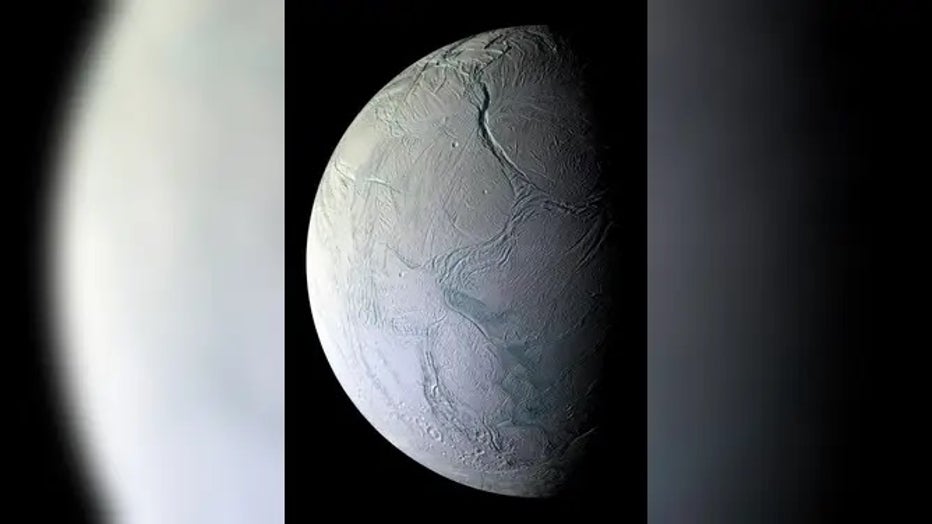NASA developing a snake-like robot to slither over one of Saturn’s 83 moons

NASA unveils Artemis 2 moon mission crew
NASA named the four astronauts who will fly to the moon by the end of next year, including one woman and three men. The three Americans and one Canadian were introduced during a ceremony in Houston, home to the nation?s astronauts as well as Mission Control.
PASADENA, Calif. - NASA’s Jet Propulsion Laboratory is in the midst of testing a new robot that it hopes to deploy into outer space to help answer the age-old question of whether life exists away from Earth.
The Exobiology Extant Life Surveyor (EELS) system is a snake-like robot designed to maneuver through solid and liquid formations while collecting samples.
One of the space agency’s listed objectives is to reach the surface of Enceladus, one of Saturn’s 83 moons, and examine its icy features.
Due to a voyager spacecraft flyby in the 1980s, it is believed the icy surface of Enceladus is relatively smooth, and temperatures are greater than 300 degrees Fahrenheit below zero.
In 2005, NASA’s Cassini spacecraft discovered that icy particles flowed from the surface of the moon into space, creating its own ring while orbiting Saturn. These eruptions from the moon’s surface gave credence that a vast liquid ocean may lie beneath the surface.

Illustration of the Exobiology Extant Life Surveyor (EELS) concept (NASA)
WATCH OUT FOR THESE ASTRONOMICAL EVENTS IN 2023
The hostile conditions are one of many challenges the EELS team has taken into account while designing a craft that can survive in the extreme environment.
A complex propulsion system will allow for surveying of solid or liquid landscapes, and members have been busy testing the surveyor in hostile regions on Earth.
The 16-foot-long robot has been used to examine glaciers and volcanoes to put its capabilities to the test.
NASA FINDS RARE PHENOMENON HAPPENING ON SATURN
NASA has not set a launch date for the EELS project, meaning any mission is likely years away.
If the quest is successful, the space agency said it could lead to deeper exploration of celestial bodies that were once considered unattainable.

NASA captured a photo of the surface of Enceladus (NASA)

